
The Standoff Between the Texian and Mexican Armies and the Pivotal Battle Unfought
Published April 2024
Texas State Historical Assn
978-1-62511-077-0 paperback $40.00
Texas A&M University Press provides warehousing, fulfillment, and accounting services for the Texas Book Consortium, a group of university and small presses located around the state.
Each of the presses in the Texas Book Consortium acquire and publish their own books, which are then housed and sold by Texas A&M Press from its facility in College Station. Each press brings a distinct character to its publishing program, yet taken together the publishers in the Texas Book Consortium have provided an essential link to the history, culture, and literary life of the state and region, nurturing award-winning and sometimes groundbreaking works of non-fiction, fiction, and poetry.
To browse books by a certain publisher, simply click on that publisher’s icon below.
Founded as a private, nonprofit educational organization on March 2, 1897, the 61st anniversary of the Texas Declaration of Independence, the Texas State Historical Association has long been regarded as one of the nation’s most dynamic regional history organizations. Reinforced by more than one hundred years of scholarship and educational programs, its mission is to further the appreciation, understanding, and teaching of the rich and unique history of Texas through research, writing, and publication of related historical material.
In June 1897, the Association inaugurated publication of the Quarterly of the Texas State Historical Association, and fifteen years later the title was changed to the Southwestern Historical Quarterly, reflecting a need for additional content and recognizing the broader scope of Texas history. Appearing in 1918, Ephraim D. Adams’s British Diplomatic Correspondence concerning the Republic of Texas, 1838-1846 was the first book published under the TSHA imprint.
Headquartered in Austin, the Texas State Historical Association continues to pursue—in the words of Walter Muir Whitehill—the “actual doing of history,” from research, writing, and publications, to the strong programs that support teaching Texas history in the public school system. Founding TSHA president Oran M. Roberts, in his inaugural address, asserted that “any and everything that the people do or think, that tends to form habits of life, or to build up prevailing institutions affecting society, constitutes material for history.” It is under such principles that the TSHA operates today, ensuring the vitality of Texas history for generations to come.
BOOKS
Specializing in books relating to Texas history, the TSHA publishes new titles as well as reprints of Texas history classics. The Association currently has more than one hundred books in print, including biographies, general histories, cartographic studies, and books on art and photography. The Association’s endowed publication series include the Fred Rider Cotten Popular History Series, which features books on historic sites, cities, and notable events (e.g., the Civil War) and their effects on the state along with short biographies and the Watson Caufield and Mary Maxwell Arnold Republic of Texas Series, which features books on subjects related to Texas history between 1836 and 1845.
TEXAS ALMANAC
In 2008, the Association acquired the Texas Almanac, a respected reference book and educational resource. First published in 1857 and now in its 69th edition, the Texas Almanac was donated to the TSHA by the Dallas Morning News. The Texas Almanac is published in full color every two years and includes maps of Texas and each of its 254 counties. In-depth sections feature articles and statistics on, the environment, weather, recreation and sports, government, culture and the arts, health and science, education, business and transportation, and agriculture in the Lone Star State.

The Standoff Between the Texian and Mexican Armies and the Pivotal Battle Unfought
Published April 2024
Texas State Historical Assn
978-1-62511-077-0 paperback $40.00
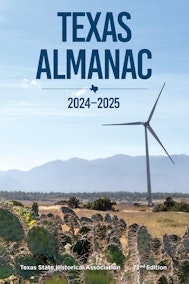
Edited by Rosie Hatch
Published December 2023
Texas State Historical Assn
978-1-62511-075-6 paperback $24.95
978-1-62511-074-9 hardcover (printed case)
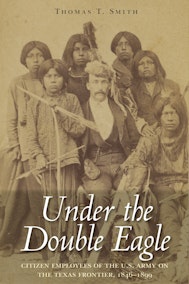
Citizen Employees of the U.S. Army on the Texas Frontier, 1846–1899
Published November 2023
Texas State Historical Assn
978-1-62511-072-5 hardcover (printed case) $100.00

The Memoirs, Art, and Poems of Ricardo M. Beasley
Published October 2022
Texas State Historical Assn
978-1-62511-057-2 hardcover - limited edition $100.00 s
978-1-62511-070-1 paperback
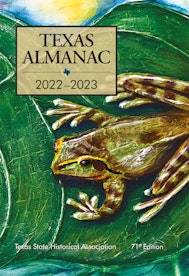
Edited by Rosie Hatch
Published November 2021
Texas State Historical Assn
978-1-62511-067-1 paperback $8.00
978-1-62511-066-4 hardcover (printed case)
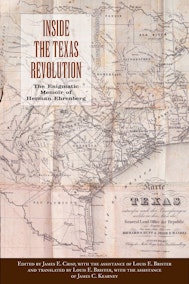
The Enigmatic Memoir of Herman Ehrenberg
Edited by James E. Crisp
Published October 2021
Texas State Historical Assn
978-1-62511-069-5 paperback $40.00
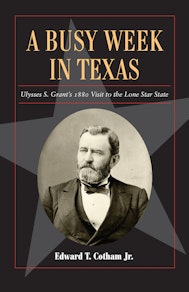
Ulysses S. Grant's 1880 Visit to the Lone Star State
Published October 2021
Texas State Historical Assn
978-1-62511-064-0 paperback $20.00
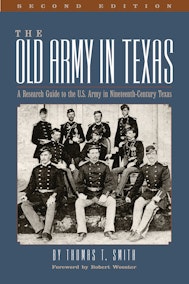
A Research Guide to the U.S. Army in Nineteenth Century Texas
Published October 2020
Texas State Historical Assn
978-1-62511-060-2 paperback $30.00

The Revolutionary Life of José Francisco Ruiz, 1783–1840
Published June 2020
Texas State Historical Assn
978-1-62511-058-9 paperback $30.00
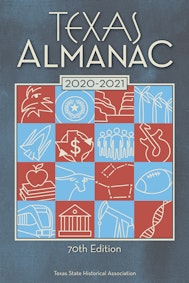
Edited by Rosie Hatch
Published November 2019
Texas State Historical Assn
978-1-62511-055-8 flexbound $24.95